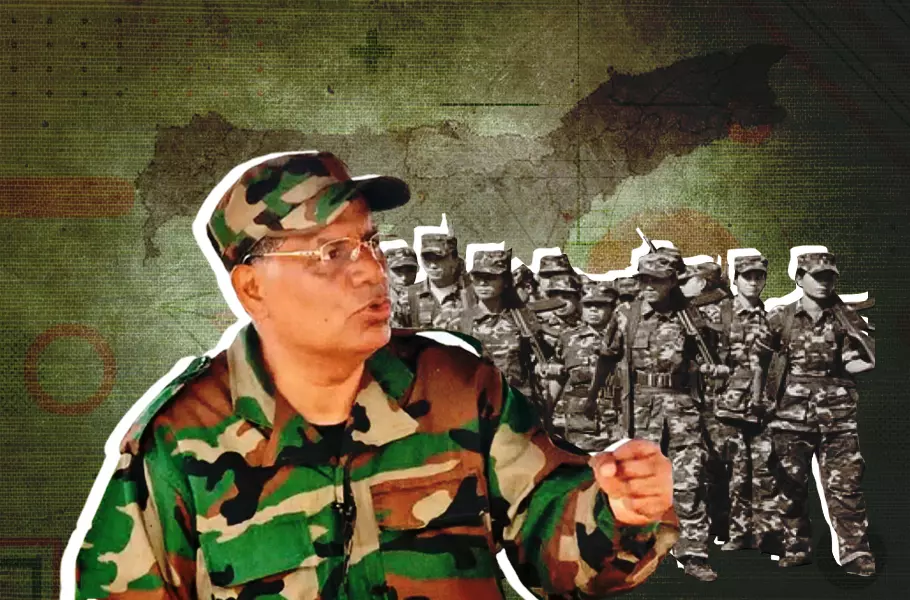
Is Bangladesh again becoming hub of anti-India activities?
Indian security agencies suspect the involvement of Bangladesh’s deep state in the plan as Farhan Israk is a close aide of ABT chief Rahmani

The unravelling of a Bangladesh-based Islamist terror group’s plan to destabilise the Siliguri corridor of India has reconfirmed fears that Dhaka is once again becoming the centre of anti-India activities.
The sinister design came to the fore during the interrogation of terror suspects arrested in the past 24 hours, Additional Director General of Police (South Bengal) Supratim Sarkar said on Friday.
The joint crackdown by the special task forces of Assam and West Bengal led to the arrest of two persons from West Bengal. One Bangladeshi national was arrested from Kerala and five others were nabbed from Assam.
Also read: India on alert as Bangladesh deploys Turkey-made drones on border: Report
Bangladeshi handlers at work
Sarkar said the plan was to carry out the subversive activities in the Siliguri corridor by setting up sleeper cells and arming local recruits.
Bangladeshi handlers were trying to recruit youths “using communal fissures and economic disparities”, according to the West Bengal Police.
The plan was being executed under the supervision of Md Farhan Israk, a member of the Ansarullah Bangla Team (ABT), an affiliate of Al-Qaeda in the Indian subcontinent, according to the police.
A Bangladeshi’s network
To execute the plan, Israk sent to India a 32-year-old Bangladeshi, Md. Sad Radi alias Md. Shab Seikh, a resident of Bangladesh’s Rajshahi district.
Radi sneaked into India through West Bengal’s Murshidabad district last month. He visited Assam and West Bengal before moving to Kerala to meet sleeper-cell activists of the banned ABT.
“The incriminating documents and mobile phones with technical evidence seized from the arrested accused indicate their continuous communication across the border with Bangladesh and Pakistan-based entities over the last couple of months,” Assam police said in a statement.
Deep state involved?
The Indian security agencies suspect the involvement of Bangladesh’s deep state in the entire plan as Farhan Israk is a close associate of ABT chief Jasimuddin Rahmani.
Also read: Diplomats worry as India-Bangladesh ties, once solidly glued, unravel
Rahmani was released from jail on parole in August this year, immediately after the interim government headed by Nobel peace laureate Muhammad Yunus took charge. He was jailed for killing atheist blogger Rajib Haider.
New Delhi had flagged security concerns over Rahmani’s release citing his past attempts to establish jihadi networks in India with the help of sleeper cells.
Rahmani on Kashmir
Immediately after coming out of the jail, Rahmani started his tirade against India calling for secession of Jammu and Kashmir from the Indian union even as Bangladesh’s caretaker government looked the other way.
The busting of his ABT module showed Rahmani is not limiting his anti-India activities to propaganda. He was planning covert operations to “disrupt peace and tranquillity as well as cause destruction of life and property”, police sources said.
The ABT recruits arrested were actively involved in the procurement of arms and ammunition as a part of the larger conspiracy to wage war against India, the police added.
Baruah gets a reprieve
Further investigation is on to unearth if there were more modules of the terror group spread across the country.
Rahmani is not the only anti-India element the Bangladeshi deep-state is patronising, said a top Indian intelligence official based in eastern India.
He pointed out that commuting the death sentence of United Liberation Front of Asom (ULFA) chief Paresh Baruah by a high court bench in Bangladesh earlier this week was not just an ordinary judicial development.
Seizure of weapons
The development was an indication of Bangladesh's new regime’s approach towards anti-India forces.
A special court in Chittagong sentenced Baruah to death in January 2014 in connection with an armed smuggling case.
Also read: Bangladesh wants ‘no interference’ in its affairs as India raises minority attacks issue
The case was about the seizure of 4,930 firearms, 27,020 grenades, 840 rocket launchers, 300 rockets, 2,000 grenade launching tubes, 6,392 magazines and over 1.14 million bullets by the Bangladesh police on April 1, 2004.
Bid to revive ULFA?
The proscribed ULFA had then several camps in Bangladesh and almost all of its top leaders were based in that country.
All the leaders barring Baruah were arrested and handed over to Indian authorities after Sheikh Hasina’s Awami League took power in 2009. Baruah escaped to China via Myanmar.
Security sources in Assam said Baruah was trying to re-cultivate his network in Bangladesh in a bid to re-establish his outfit’s base there.
